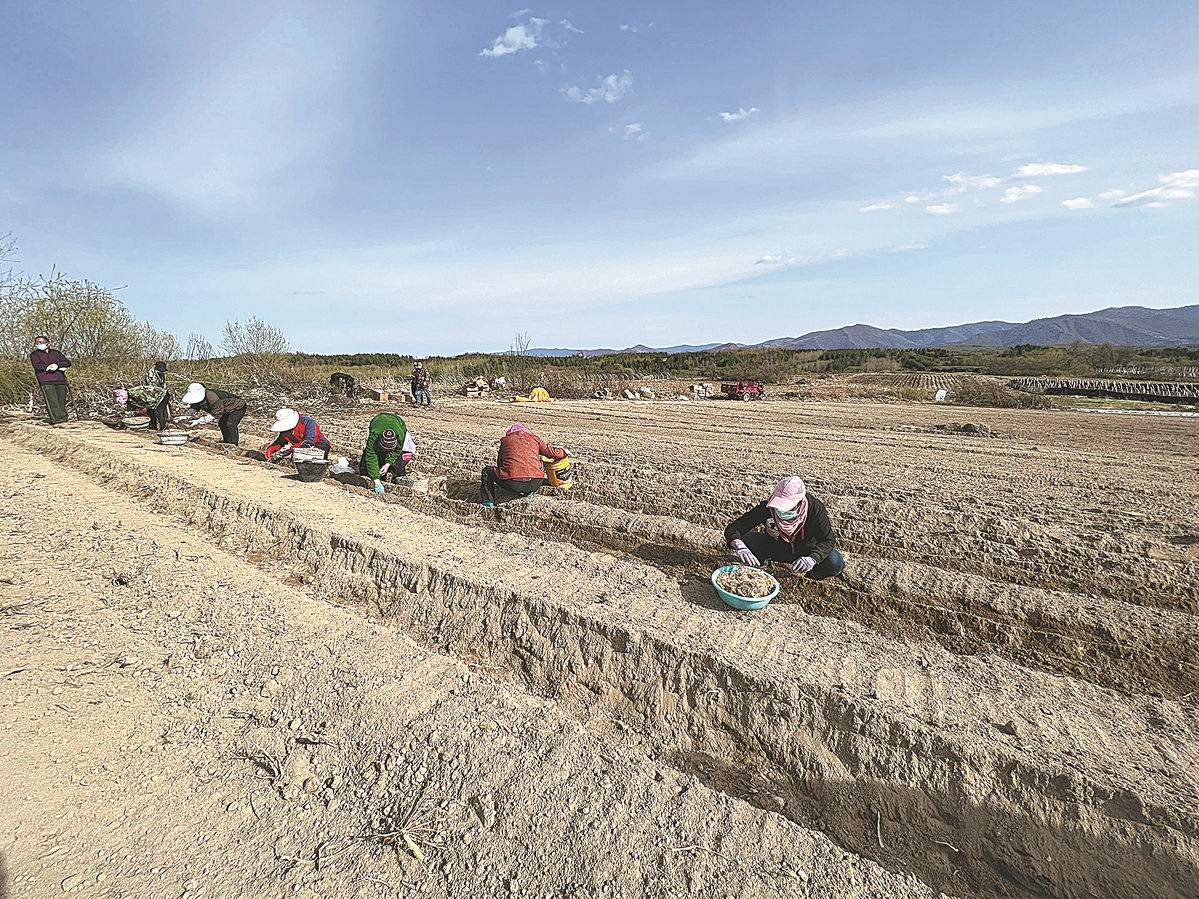Villagers count on Chinese herbs to increase incomes


Baoquanshan town in Changbai county, Jilin province, is striving to develop a Chinese medicinal herbs cultivation industry to help locals increase their incomes and avoid falling back into poverty.
A recent project that attracted over 2 million yuan ($300,278) in investment began in October in Laobaojia village, and during the past spring planting season, Chinese medicinal herbs, including huangjing, cangzhu and weilingxian, were planted on 10 hectares of arable land.
"Baoquanshan is at the foot of the Changbai Mountains and is suited to growing Chinese herbs because of its high-altitude microclimate," said Zhang Degang, deputy head of the town. "Moreover, we have pristine water and abundant forest resources, which provide ideal conditions for the plants.
"With the increasing demand for Chinese herbs in both the domestic and overseas markets in recent years, we thought it would be a good business opportunity to develop the scientific cultivation of Chinese herbs."
In May last year, the local government decided to attract social funds to promote cultivation projects to drive the town's economic development and help more residents learn about planting technology and practices.
After several months of market research and analysis, as well as negotiations with businesspeople, the town government signed a cooperation agreement with Wang Zhengguo.
Wang, 50, was born in a village of Baoquanshan and moved to the city of Ji'an with his family at age 15. "My father successfully developed his nursery stock business in Ji'an, and I took over after he passed away in 2012," he said. "Over the years after we left our hometown, my father never forgot it and always hoped to do something for it. Also, I have lots of good memories of my childhood in Baoquanshan.
"In recent years, I had seen some decline in business, so I decided to develop in new areas," he said, adding that he began to research the cultivation of Chinese herbs as early as 2018 and had a preliminary business plan after receiving the town government's invitation.
"After negotiation, I clearly saw their determination to develop the industry, and I believed it would be a good opportunity for me to repay my hometown, which was also my father's wish," he said. "Therefore, I accepted their invitation."
In September, together with local officials, Wang visited experts at Chinese herb plantation bases in Fushun, Liaoning province, to learn more about markets and planting technologies.
"The town government gave me a lot of support in terms of policies, renting arable land and employing workers," he said. "We also reached an agreement that job opportunities would be prioritized for those from impoverished families."
During the busiest time in the planting season, at least 50 workers are needed to work the land. Wang invited experts from Liaoning to teach them about the latest practices and technologies.
After receiving a monthly salary of 4,000 yuan in May, Zhao Chuanbo, a 50-year-old villager from Laobaojia, was relieved that he was able to afford to stay in the village to look after his 73-year-old mother instead of having to seek a job elsewhere. "In the past, to increase my family's income, I tried different odd jobs in nearby cities, which gave me little time to take care of my mother," he said.
"When the Chinese herb plantation project started in the village last year, Wang rented my 0.7 hectares of land, and now it generates 3,000 yuan a year for my family."
Wang said his vision extends far beyond one plot. "I plan to rent more than 10 hectares of land by the end of this year," he said. "I hope to develop a relatively complete industry chain in the future to help boost the local economy."
- A glimpse of Xi's global insights through maxims quoted in 2024
- China's 'Ice City' cracks down on ticket scalping in winter tourism
- Iron stick yams revitalize Wenxian county
- Party chief of Guilin under investigation
- Two radio telescopes put into use to support deep space exploration
- Joint action transforms Mekong region




































